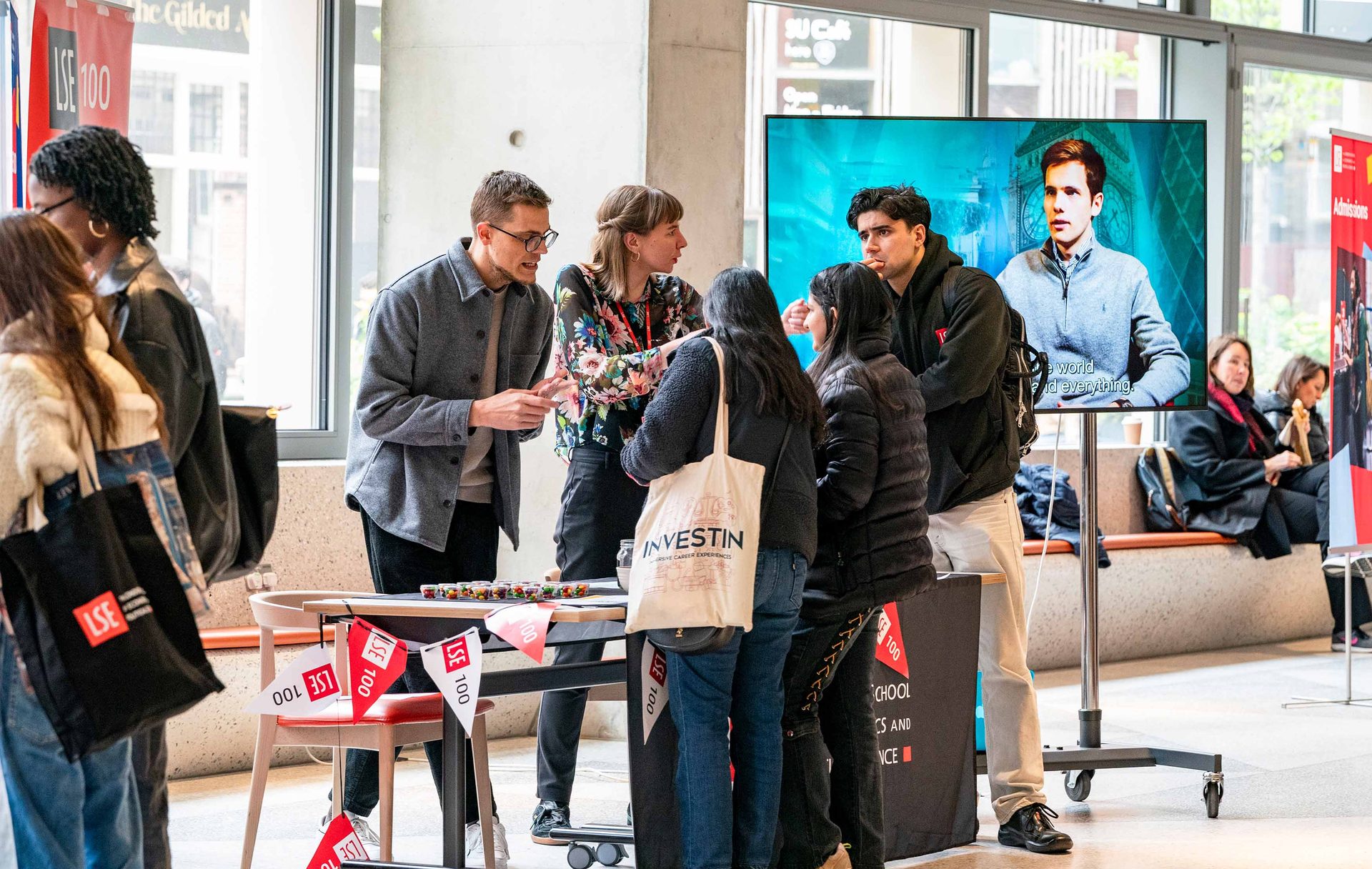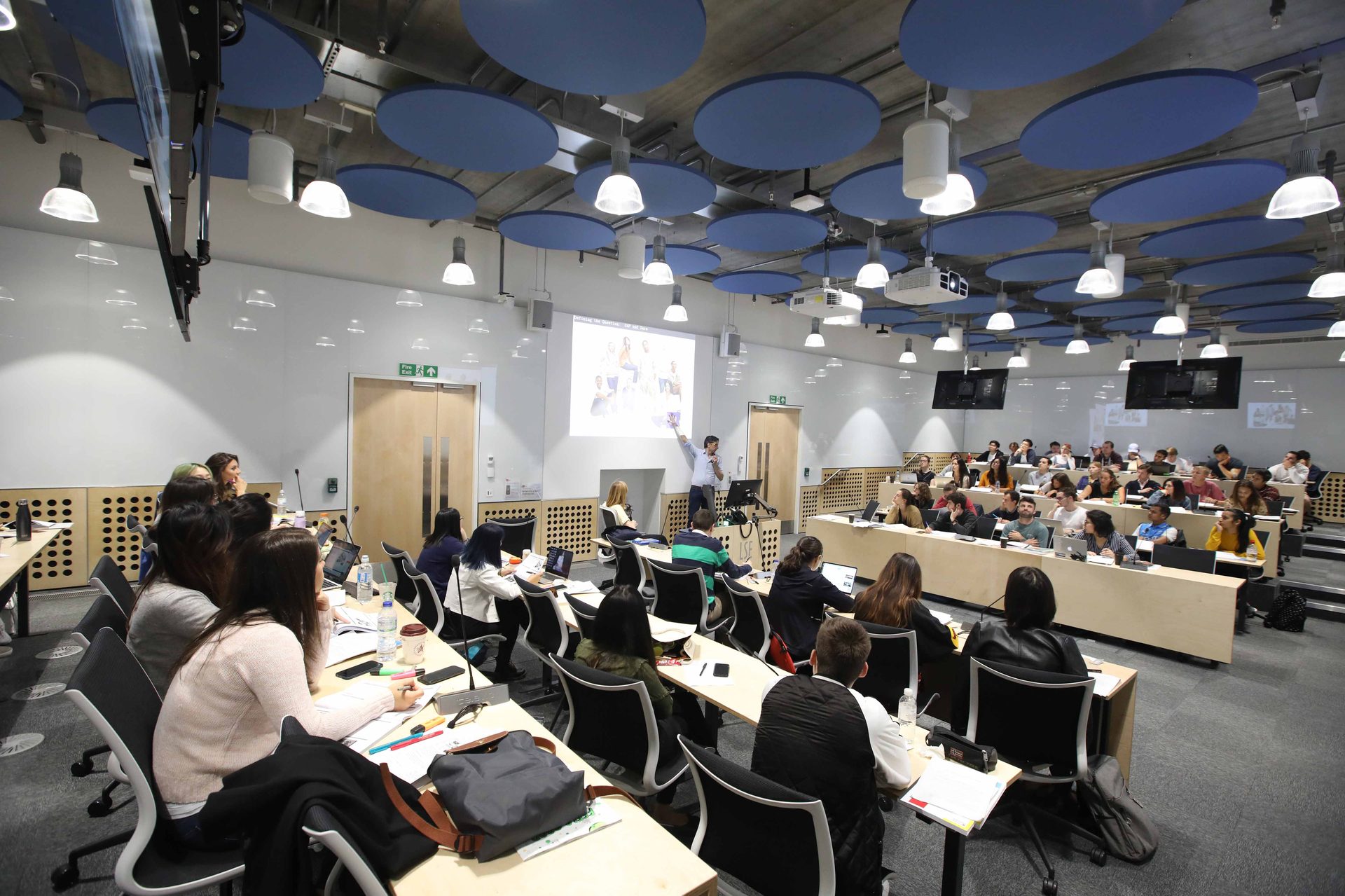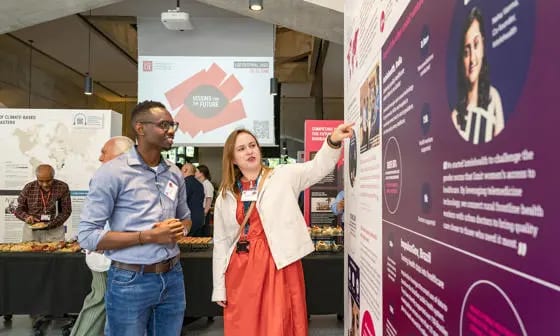From England’s capital, the London School of Economics and Political Science (LSE) is reshaping how the world thinks about leadership, organisations, and change. Here, management is less about calling the shots and more about interrogating the most pressing questions of our time.
As #1 in the UK in the Times and Sunday Times Good University Guide 2026 and #6-ranked university worldwide for Social Sciences and Management, LSE’s Department of Management is well-positioned to explore such topics. In doing so, it challenges conventional thinking, expands the boundaries of knowledge, and equips its students to lead with clarity and purpose in an ever-evolving world.
In 2024 alone:


Dr. Emma Soane, a Fellow of the British Psychological Society, explored how work can be a healthy coping mechanism after bereavement, shedding light on the connections between mental health and employee engagement.

Dr. Edgar Whitley’s project, commissioned by Women in Identity, examined the economic costs of identity exclusion, providing insights into how organisations can foster inclusivity and reduce financial inefficiencies.

Dr. Nadia Millington and MSc Social Innovation and Entrepreneurship graduate Franziska Golenhofen looked into the mindset traps that hinder sustainability initiatives, helping leaders break free and achieve transformative progress.

Professor Alexander Pepper provided critical insights into the UK’s executive pay debate, drawing on academic theories to unpack complex economic and political dynamics.

Dr. Dorottya Sallai challenged traditional perceptions of Generative AI, encouraging a shift toward embracing its opportunities.



IBM and Columbia University are partnering to make data centres more energy-efficient, as these facilities consume around 2% of U.S. energy supplies according to the Department of Energy. They are modelling AI's energy use, designing low-power chips, reducing software inefficiencies, and optimising system operations to address this issue.

V. Faye McNeill, professor of chemical engineering, is working with partners across the Global South to expand air quality monitoring in India, generate new air pollution data in Africa, and build local capacity in air quality science. The team’s success has led to informed policy decisions and improved air management across various regions.
1600+
students
53%
PURSUING POSTGRADUATE STUDIES
80%
OF GRADUATES IN FULL-TIME EMPLOYMENT WITHIN 15 MONTHS
81%
INTERNATIONAL STUDENTS (FROM OUTSIDE THE UK)
The Department of Management is located in the heart of London, a living case study of how the world works. From Canary Wharf’s financial hubs to Shoreditch’s creative energy, it’s the best place for a front-row seat to global industries converging, cultures colliding, and innovation coming to life. The department harnesses this energy to provide an education as dynamic and interconnected as the city.
This isn’t business as usual. This is Management at LSE.
The department is located in the heart of London, a living case study of how the world works. From Canary Wharf’s financial hubs to Shoreditch’s creative energy, it’s the best place for a front-row seat to global industries converging, cultures colliding, and innovation coming to life. The LSE Department of Management harnesses this energy to provide an education as dynamic and interconnected as the city.
This isn’t business as usual. This is Management at LSE.
The department is located in the heart of London, a living case study of how the world works. From Canary Wharf’s financial hubs to Shoreditch’s creative energy, it’s the best place for a front-row seat to global industries converging, cultures colliding, and innovation coming to life. The LSE Department of Management harnesses this energy to provide an education as dynamic and interconnected as the city.
This isn’t business as usual. This is Management at LSE.
8 advanced degrees rewriting the rules of management
A campus designed for impact
My long-term goal is to become a subject matter expert in supply chain, which is the backbone of the industry. I found BGSU's Logistics Systems Engineering program is a combination of engineering and management, which helps me to enhance my knowledge and skills. I joined BGSU in January 2022 and got the opportunity to work as a Graduate Assistant on an industrial project under the guidance of Dr. Sarder.
Swati Arora, India
MS in Logistics Systems Engineering

Hear from the students
This one-year programme combines rigorous analytical training with real-world experience, equipping you to tackle the complexities of global organisations. You’ll master core management skills — strategy, leadership, marketing, and finance — while exploring the economic, social, and political forces shaping the business world today. Expect to put knowledge into practice through a capstone project with a global company and an international study trip . Upon graduating, follow in the footsteps of alumni excelling in companies like Amazon, Accenture and Google or blazing in their entrepreneurial trails.

Master’s in Management
This unique two-year programme combines rigorous academic learning with global exposure. In your first year, you’ll build a strong foundation in management theory, covering topics like managerial economics, organisational behaviour, and finance. Year 2 offers you the opportunity to specialise through one of three pathways: spend a term abroad with the CEMS MiM programme, join an MBA exchange at top global institutions like Yale or Northwestern, or stay at LSE and specialise in areas like finance and strategy.

Global Master's in Management
This one-year programme offers a distinctive blend of human insights, analytical expertise and business acumen, aimed at equipping you with the skills needed to succeed. You’ll build a fundamental understanding of customer behaviour, drawn from the latest research and insights, and how to apply analytics to drive marketing success. You’ll also learn about the wider business context in which marketing teams operate and the role of marketing in driving strategic organisational objectives. The Marketing Action Learning Project (MALP) grants you the opportunity to work with a real-world organisation on a solution to an existing issue, where you’ll have the chance to present your findings.

MSc Marketing
This one-year programme nurtures the skills you’ll need to lead in a digital world, examining emerging fields such as AI, big data analytics, and digital governance. You’ll engage in the intensive Sprint Week group project, collaborating with faculty and real-world clients on a technology management consultancy project, honing your ability to apply digital innovation concepts in practice. Other programme highlights include the Summer Camp: AI in Practice, an optional week of non-assessed learning after the Sprint Term concludes, an alumni networking event, and a social trip to the city of Bath.

MSc Management of Information Systems and Digital Innovation
This programme combines economic theory with real-world management practices, providing a critical understanding of incentives, governance, organisational design, and strategic decision-making. Through five core courses and a range of electives, you’ll learn to apply economic analysis to solve complex managerial problems. The programme culminates in a 6,000-word dissertation, allowing you to specialise in an area of your choice. Graduates go on to succeed in top firms like PwC, Deloitte, and McKinsey.

MSc Management and Strategy
This MSc offers a comprehensive blend of theory and practical skills in managing people and teams. It covers foundational HR management and strategy, with three distinct streams to tailor your learning to your career goals: Human Resource Management (HRM), International Employment Relations (IER), and Organisational Behaviour (OB). The HRM and IER streams are accredited by the Chartered Institute of Personnel Development (CIPD), ensuring globally recognised qualifications. The Organisational Behaviour stream focuses on change management and employee behaviour, preparing you for roles in consulting, HR, and organisational psychology. The programme is aligned with the Society of Human Resource Management (SHRM), offering an edge for professionals targeting careers in the US and beyond.

MSc Human Resources and Organisations
This unique one-year programme aims to equip you with the knowledge and skills to understand social innovation, as well as to think about how to finance and launch successful entrepreneurial ventures with social goals. You’ll develop the skills to understand the root causes of social challenges and drive real change, as well as master key management and leadership skills, empowering you to become an outstanding leader. One of the highlights of the programme is the international field trip (currently in Kenya or South Africa) where you’ll take your learning beyond the classroom and have the opportunity to collaborate with a real-world organisation.

MSc Social Innovation and Entrepreneurship
Unlike traditional MBA programmes, this master’s focuses on understanding the root causes of business challenges within a global context. Designed for experienced professionals, it’s structured in short, intensive modules — seven core classroom modules over 17 months, with five held in London and two at international locations. This format allows you to balance work and study commitments, requiring only nine weeks away from your workplace to become a better leader and decision-maker.

Executive Global Master's in Management
Hear from the graduates


The road to leadership begins at the London School of Economics and Political Science.
Register your interest in 2026 study by filling in our enquiry form.

Copyright © 2024 Study International, official representative of London School of Economics



